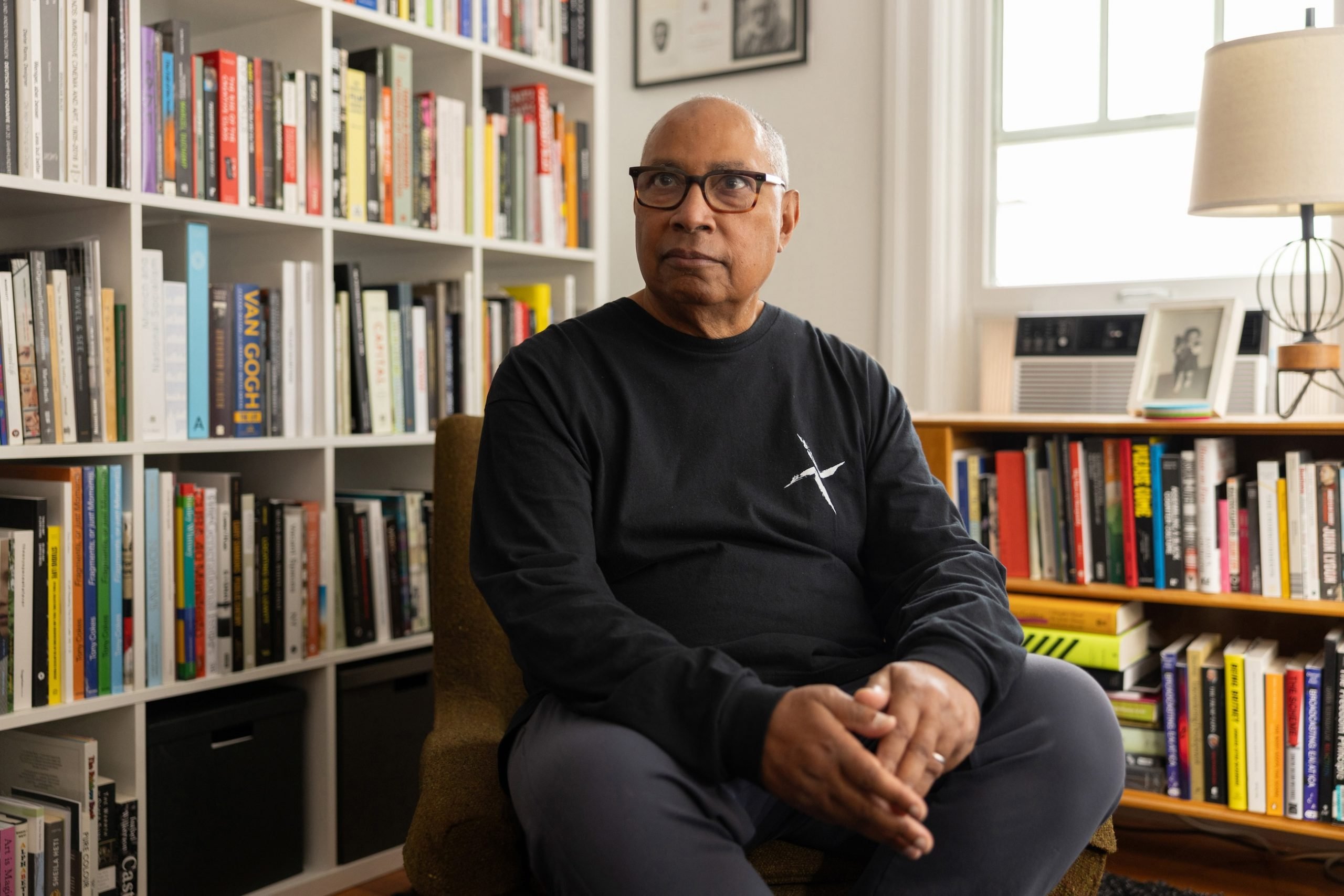
The moment when the list of recipients of the MacArthur Foundation’s so-called “genius” grants is announced is one of the calendar’s most anticipated, and when recipients are thereafter given a one-line bio, it typically includes that grant if nothing else.
Visual artists Tony Cokes, Ebony G. Patterson, and Wendy Red Star number among this year’s 22 recipients, a list that also includes cabaret singer Justin Vivian Bond, filmmaker Sterlin Harjo, and author Ling Ma.
The grant is given out by the John D. and Catherine T. MacArthur Foundation, and lauds recipients in various fields. About 1,100 recipients have been named since the first class of grantees in 1981. It includes a no-strings-attached $800,000 purse.
Cokes, a professor of modern culture and media at Rhode Island’s Brown University, creates videos that combine found texts from sources as varied as interviews with musicians and speeches by activists with throbbing soundtracks that might be sourced from Detroit techno music or English new wave-pop band the Smiths. Through this means he explores subjects ranging from popular culture and art theory to terrorism and beyond.
Writing for Art in America in 2021, critic William S. Smith asserted that Cokes’s web video series “Of Lies and Liars” was “one of the first great artworks” of the post-2020 era. Among his recent exhibitions are a major survey organized jointly by the Haus der Kunst and Kunstverein in Munich (2022–23) and a solo at the Hessel Museum of Art, Annandale-on-Hudson, New York (2024).
Wendy Red Star. Courtesy John D. and Catherine T. MacArthur Foundation.
Red Star, whose lineage is Apsáalooke (Crow), often explores creative traditions of her ancestors. “Her own work often makes liberal use of labels, captions, and annotations, appropriating the kind of taxonomical language so often used to portray her culture,” wrote Taylor Dafoe in Artnet News in 2022. “Sometimes, the goal is satire, as in her photo series ‘Four Seasons’ and the ‘The Last Thanks,’ both of which found the artist recreating the doll-filled dioramas of museums.”
“I am thrilled for my work to be recognized by the Foundation,” the artist said in an email. “It is truly an honor to be included amongst this years’ cohort and I look forward to the opportunities ahead.”
She has exhibited her work at institutions from New York’s Metropolitan Museum of Art to the Getty in Los Angeles, and her work resides in collections including the Museum of Modern Art and the Guggenheim Museum in New York, Crystal Bridges Museum of American Art in Bentonville, Arkansas, and the British Museum in London.
Ebony G. Patterson. Courtesy John D. and Catherine T. MacArthur Foundation.
The MacArthur Foundation describes Patterson as “a multimedia artist creating intricate, densely layered, and visually dazzling works that center the culture and aesthetics of postcolonial spaces.”
Her work often packs a powerful punch beyond the surface prettiness: a 2015 show at her Chicago gallery, Monique Meloche, secreted away images of victims of violence behind floral imagery. Her work is included in public collections from the Los Angeles County Museum of Art and the Whitney Museum of American Art in New York to the Zeitz Museum of Contemporary Art Africa, Cape Town, South Africa. She has been the subject of exhibitions at the Studio Museum in Harlem,
Recipients are not notified that they have been nominated, and typically are cold-called. Touching tales of how recipients learned that they were winners of the prize are legion. This year, according to the New York Times, some were told that they would be invited to participate in a panel discussion the foundation was organizing, only to get a call from an unfamiliar number informing them that there was no panel, and instead that a cool $800,000 awaited them.